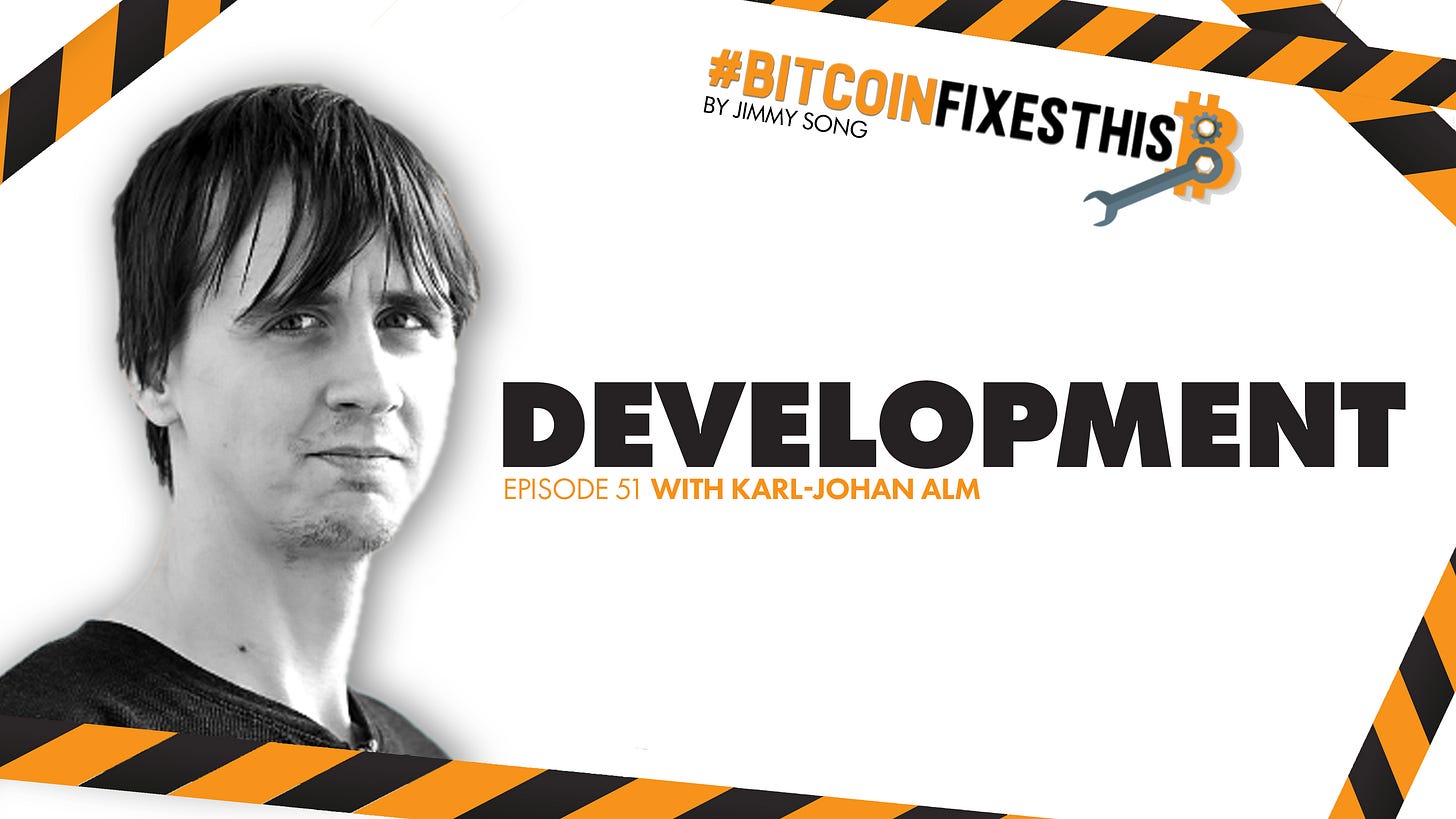Ethereum is a Rube-Goldberg Machine. Bitcoin Tech Talk #250
Ethereum Twitter was in an uproar this week because the #eth hash tag appended an Ethiopia flag instead of the Ethereum symbol. This is most likely to allow tagging of Olympic results in a way that’s more engaging, but never mind that. To Ethereum enthusiasts, whom I call EthHeads, this was a travesty of justice! After all, the #Bitcoin and #BTC tags both append a Bitcoin symbol, so why are they being discriminated against?
What was interesting to me was that they saw this as a huge blow to their brand. They were less important than the country of Ethiopia and felt like Jack Dorsey was personally insulting them. This is all the more interesting because there are lots of other issues on Ethereum going right now. There’s the MEV stuff because of their pending move to proof-of-stake. There’s the large number of scams on DeFi. NFT winter is pretty much here and of course, ETH 2.0 is delayed again.
Notice that these issues are all related to the completely centralized nature of Ethereum. Their central committee has been determined to destroy miner revenue through a move to PoS, they have been promoting DeFi and NFTs for two years and have been planning and mostly failing to execute ETH 2.0 for 3 years now. They are, however, narratives around which hype in Ethereum continues. The technical merits are questionable at best, but the speculative frenzy is not.
Ethereum has always been and continues to be a Rube-Goldberg machine. The complexity of the machine was always meant to dazzle us into missing what the machine actually does. The point wasn’t to complete some task, but to get people to buy the token.
Which brings us back to the #eth tag controversy. The reason so many EthHeads are so upset is because they recognize the harm to their brand. An #eth tag that showed the Ethereum logo would be a major boost to their marketing efforts. They would be able to claim some level of tacit endorsement by a major tech company. Instead, what they get is a tacit disapproval of their complete nothingburger of a currency.
Still, they continue to market the heck out of their “features,” which lacking substance, they certainly need. Notice that every contract on Ethereum can more or less be run on Ethereum Classic, Binance Chain and others without any modification. The only reason people continue to be on Ethereum is because of the heavy marketing they put in to get new suckers. There’s always great opportunity to make money when there’s a lot of suckers in one place.
In a way, Ethereum has become a test of investment philosophy. How much do you care about what you’re buying and how much do you care about how other people perceive what you’re buying? For the sake of civilization, I hope more people start focusing on the fundamentals instead of the hype.
Bitcoin
An amusing post by B10C shows how p2tr outputs are actually spendable because Taproot hasn’t activated yet and nodes are not enforcing those rules. It’s great that someone is testing p2tr addresses and so on, but you really should use Signet or until Testnet activation to do so, lest you lose the money locked to those addresses. The post goes into how Segwit works in general, which is useful as an upgrade guide. Taproot is Segwit v1.
Chaincode has a seminar program for those that want to learn Bitcoin and Lightning protocol development. This looks like a fantastic program to learn to become a developer with weekly readings and studies, which include some stuff I’ve written and presented. I suspect companies are chomping at the bit to hire anyone that’s gone through this program as it’s intense and thorough.
Brink has given more developer grants. Congrats to Larry Ruane and Sebastian Falbesoner! Their PR reviews and code contributions will surely continue to help Bitcoin in its security.
Lightning
Blockstream has announced a Lightning node hosting service called Greenlight. This is a service to make running a lightning node as easy as possible, yet still not hold user keys. Users will still hold their own keys on their own device and will communicate with the service to sign various transactions. This looks to me like the AWS of the Lightning Network Web 3.0 structure where apps can now be built and scaled appropriately. Great initiative to help people onboard to Lightning.
Erin Malone shares how to run a Lightning node profitably. The main takeaways from the article are that peers matter more than channel size, rebalancing is appropriate only when there’s flow both ways, and now is a good time to experiment with routing fees. The practical realities of running a lightning node are still a bit difficult to manage but plebnet and articles like this are helping many people get on.
Ryan Gentry writes his always informative Lightning Labs newsletter. As he points out, the increase in network capacity has been exponential recently. Similar increases are happening in the podcast space with more podcasts enabling Lightning to receive payment. The general trend is that everything on Lightning is starting to ramp up in what he calls the Flywheel Effect. The past 4 years of work on Lightning seems to really be paying off now.
Economics, Engineering, Etc.
Alex Gladstein argues that Bitcoin can bring freedom to Palestine. The article is a great history lesson on how the Gaza strip came to be and more importantly, what’s caused their unbelievable poverty. Alex points out that most of what’s wrong there is because of the economic policies set out by the international community and the leaders of Palestine. Between incredibly unfair trade policies with their neighbors and corruption of officials, they’ve essentially become almost entirely dependent on international aid. What’s amazing is that Bitcoin is starting to alleviate their pain by allowing some of their many unemployed to earn money doing jobs over the internet. Truly eye-opening article and worth reading in full.
Stephan Livera makes the case against Fiat money. This is published on Yahoo Finance Australia and is meant for normies that don’t know what fiat money even means. He gives a great argument for looking at economics from an Austrian perspective and argues for Bitcoin near the end. Good article to send to your normie friends that don’t know where to get started.
Pete Rizzo writes amusingly about the disappointment that was the B-word. I share his opinion that this was an event almost entirely dedicated to shutting up the loose Nihilistic cannon that is Elon Musk. As he points out, Elon is still at the stage of Bitcoin discovery where he can only think about it as a technology and not a money. He’ll come around, I think, but I’m not sure we’ll like it when he does.
Nick Ward makes an interesting comparison between Fantasy Football and Bitcoin. As he says, there is tremendous upside to Bitcoin much like drafting late-round running backs. Of course, for me, I see Bitcoin as more like the first-round wide receiver in that it’s the safest thing in my portfolio. Bitcoin really does defy categories and it can play multiple positions on your team.
Doug from Bitstop looks to Bitcoin for hope in Cuba. Doug has relatives back there and this is a personal article for him. He thinks this is a country ripe for Bitcoin adoption at the street level. They certainly seem thirsty for freedom and we’re finding that technology is helping them to get that. Let’s hope that Bitcoin starts changing things geo-politically.
Quick Hits
ThorChain gets drained for another $8 million.
BSV’s pitiful hashrate is about to go lower.
Regulators are noticing that a lot of “DeFi” projects are scams.
Liquid has an exchange built on it now.
Twitter looks to integrate Bitcoin as is Amazon.
Events
I will be at The Bitcoin Standard conference on August 12-14 in Ensenada, Mexico, BitBlockBoom in Dallas on August 26-29, Token 2049 in London, England on October 8-9 and TabConf in Atlanta, November 4-6.
The Programming Blockchain seminar is in Mexico on August 10-11. This is a 2-day seminar for programmers to learn about Bitcoin. You can apply here. I also have a few scholarships available for those that can’t afford it. I am also working on having seminars when I go to London and Atlanta.
Podcasts, Etc.
On this week’s Bitcoin Fixes This, I talked to Karl-Johan Alm about Bitcoin Core development, how it’s decentralized and the dynamics around it. I read through last week’s newsletter which you can find here.
I talked about the moral argument for Bitcoin, why you should have lots of kids and, of course, the new book on The Bitcoin Standard podcast:
Unchained Capital is a sponsor of this newsletter. I am an advisor and proud to be a part of a company that’s enhancing security for Bitcoin holders. If you need multisig, collaborative custody or bitcoin native financial services, learn more here.
Fiat delenda est.










Elon Musk - "He’ll come around, I think, but I’m not sure we’ll like it when he does."
Up until recently I had been a Musk fan, I have come to the conclusion that Musk sees himself as a "Savior" of mankind. Unfortunately, that is very common thinking for someone who has gained such a massive following.
Bitcoin assumes that all of us would believe the same if we were in Elons' position, and is constructed to tear it down.